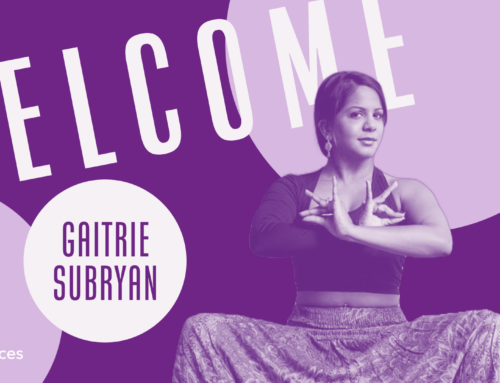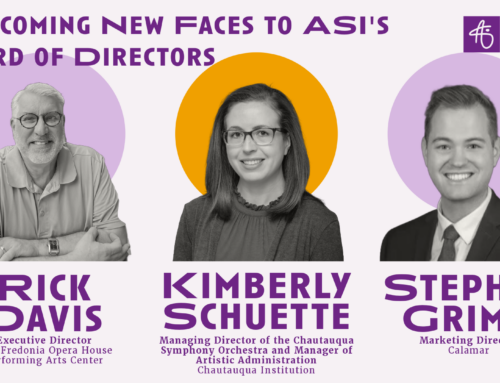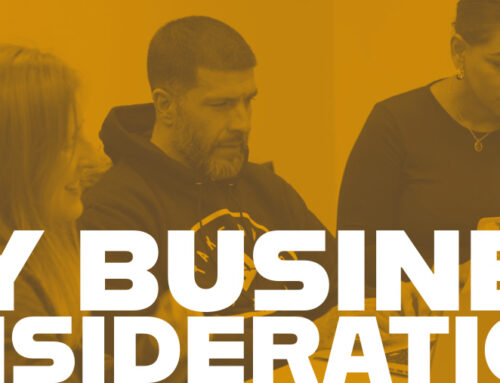We’re so excited to introduce you to our two interns from the University of Buffalo’s Arts Management Program, Adriana Torres-Trinidad and Riley Nahlik! They’ve been such a fantastic help to ASI as we coordinate our advocacy efforts and find new ways to serve our community. Here’s the link to their advocacy survey:
Adriana Torres-Trinidad: Should I say hello or…? Alright, well, hello! My name is Adriana Torres-Trinidad. I’m from Putnam County, New York and I’m a first year graduate student at the University of Buffalo in the arts management program.
Riley Nahlik: Hi, I’m Riley Nahlik. I’m originally from outside St. Louis, Missouri and I’m also a first year in the UB arts management program.
ATT: I’m a practicing artist, I paint and do photography. I graduated with my bachelors with a studio art major and I got into the arts management program in order to learn about the business side of everything since I do the creating.
RN: My background is in vocal music specifically chamber and choral music and some opera as well. I became interested in arts management, I’m really interested in arts policy and arts advocacy so coming to ASI was the best of both worlds.
RN: I would say that one thing that I’m looking forward to distilling from the program is the ability to think more critically about the arts. Not in a bad way, obviously, just to think about them and analyze them more closely in order to adapt the style of marketing, management, whatever it is to best suit that artistic medium and that specific event or program.
ATT: So one thing that I’m looking forward to take from this program is learning to network with other artists. I’m interested in curating and working with other people who are as passionate about the arts as I am.
RN: So the project we’re working with at ASI is helping to develop a plan, a strategic plan so to speak, for their advocacy wing of the organization. Helping to develop tips, tricks and strategies both for organizations and individual artists so that they can better learn how to advocate for their art and for themselves.
ATT: And also developing a definition of what advocacy does so that other artists and arts organizations can know what we do.
RN: One of the projects we’ve been working on with ASI is sending out a survey to organizations, artists, all in the WNY region asking about their needs and their skills that they have when it comes to advocacy. So if you want to help, and you want to help ASI further their advocacy goals, go ahead and visit this link. It’s only about a three minute survey and it would be really great.
RN: One thing that I’ve learned this spring working with ASI is more of the daily ins and outs of an advocacy organization. Obviously you can watch The West Wing or whatever as much as you want if you want to learn about advocacy and how lobbying works and all that sort of stuff, but you don’t really see the daily in and out until you actually are in it and having these conversations with organizations, artists, and the people who are trying to help them out.
ATT: Yeah, I’ve been able to learn about all of the different avenues of advocacy about funding, marketing, helping artists individually so it’s very interesting to know because I was unaware about all of this information before being able to be part of this organization.
RN: One thing that I could say that I think is very beneficial in order to help further along the mission of your organization or your personal success as an artist is just to have conversations with people. Whether that be fellow artists or people involved in organizations, whether that be elected officials or public officials. These people want to hear from you and they want to hear the projects that you’re working on but the only way that you can spread the idea of yourself as an artist is to reach out and have these conversations.
ATT: Also, the importance of a strategic plan; identifying your goals and actively working toward them and having it written down so you have something to look back on is very important.
(Off-screen): What can we expect from both of you after you graduate?
ATT: …
ATT: I still don’t even know what I want to do after I graduate! Umm, yeah, I’m still figuring out what I want to do. I’m just going with the flow of what this program brings to me and taking every opportunity and seeing what sparks my interest in order to get a well-rounded view of the field and pinpoint what I want to do for the future.
RN: When I graduate, I’m hoping to get a job in some kind of event production, working at an arts venue or organization, helping produce and present arts whether it’s for theater production, music, concerts, art galleries, really any of that sort of stuff. But eventually I want to move into public policy, arts policy, realm and help bring the arts to people who haven’t had access to it.




